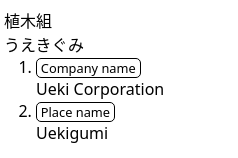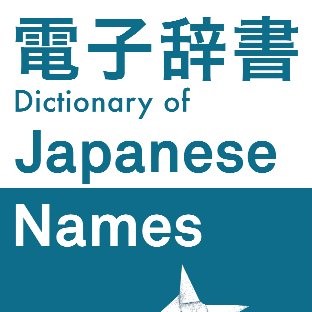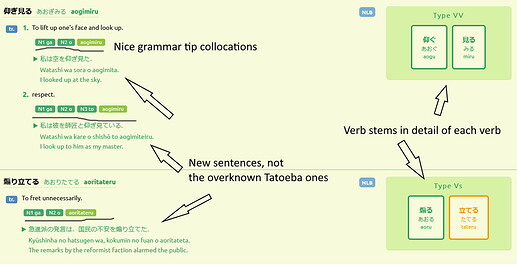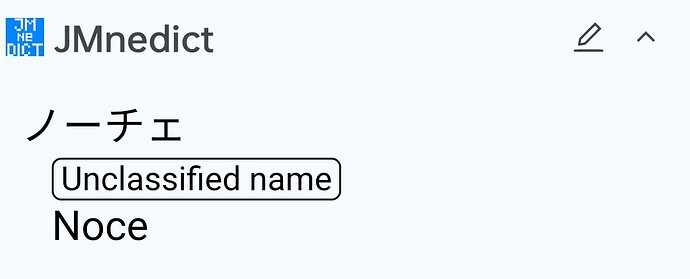(EDRDG) JMnedict [Version 2022.09.23]
Same reason as my recently shared JMdict dictionary. I wasn’t satisfied with the mdx conversions of this dictionary I could find so I made my own.
Machine translation:
原因和我最近共享的JMdict词典相同。我对我能找到的这本词典的mdx转换不满意,所以我自己做了一本。

https://www.edrdg.org/wiki/index.php/Main_Page#The_ENAMDICT/JMnedict_Project
9 个赞
Allow me to express my indefinite gratitude to you!
2 个赞
Say the same. Thanks for this.
Since you’re modifying some open source dictionaries, have you considered touch the Tatoeba example sentence webpage? I think it doesn’t have a proper dictionary itself, your recently uploaded JMedict version have some sentences indexed but that’s all.
What about other classic dicts? Kanji Dict, compound verbs dict, etc
I have no interest in the tatoeba project. A much better project to convert would be BCCWJ but the original data costs a fortune for regular people.
This data would also be most valuable to put a frequency list in place (and even a custom dictionary for an IME like mozc). There already exists frequency lists that put to use the freely provided data but they are pretty much useless since the freely provided data
does not take into account the writing used into the source material.
Here is a sample of what the original data contains:
The “キー” is the original writing found in the source material while the “語彙素” is the
interpreted writing. Unfortunately the “キー” isn’t provided in the free data but it can be viewed within the free web search service called
中納言 . Perhaps the data can be extracted but it seems like a huge task.
Concerning kanjidic, I am interested but pyglossary unfortunately does not support it. I have already opened a feature request. I am sure there is another way to get a working dictionary but I do not believe I am knowledgeable enough to handle something more complex than a tab file.
As for the “compound verbs dict”, I had never heard of it until now. I suppose it is this project? Looking through the data I do not really understand why it would be useful since any dictionary already supports explanations for compound words.
I’m waiting then for your new kanji dict version.
As for the Compound Verb Lexicon, it presents a lot of information in each single entry in a very structured way. It describes in detail all the meanings (together with their respective examples), which is not found in any dictionary. Unless you search in non-open source/free dicts, but even so, they don’t have it all so well formatted as the Lexicon.
Without going into far-fetched examples, the first entry, “仰ぎ見る”, has 2 different meanings. The first of them does indeed appear even in the JMdict version you released here a few days ago; however, it lacks the second meaning (as well as its example sentence).
On the other hand, each entry in this Lexicon has a direct (and more detailed) link to its entry in the ninjal-lwp for BCCWJ website (the database you are interested in, I see).
With all this, I want to tell you that the Compound verb Lexicon is not just another repeated dictionary of the bunch. It offers interesting entries, as well as easy to understand and straightforward explanations (also in terms of placement in a sentence). I think it would be worth a try.
2 个赞
I don’t think I share your enthusiasm, I am sorry.
I noticed that the entry for “ノーチェ” is missing a definition for “noche.” Could you please add it?
1 个赞





